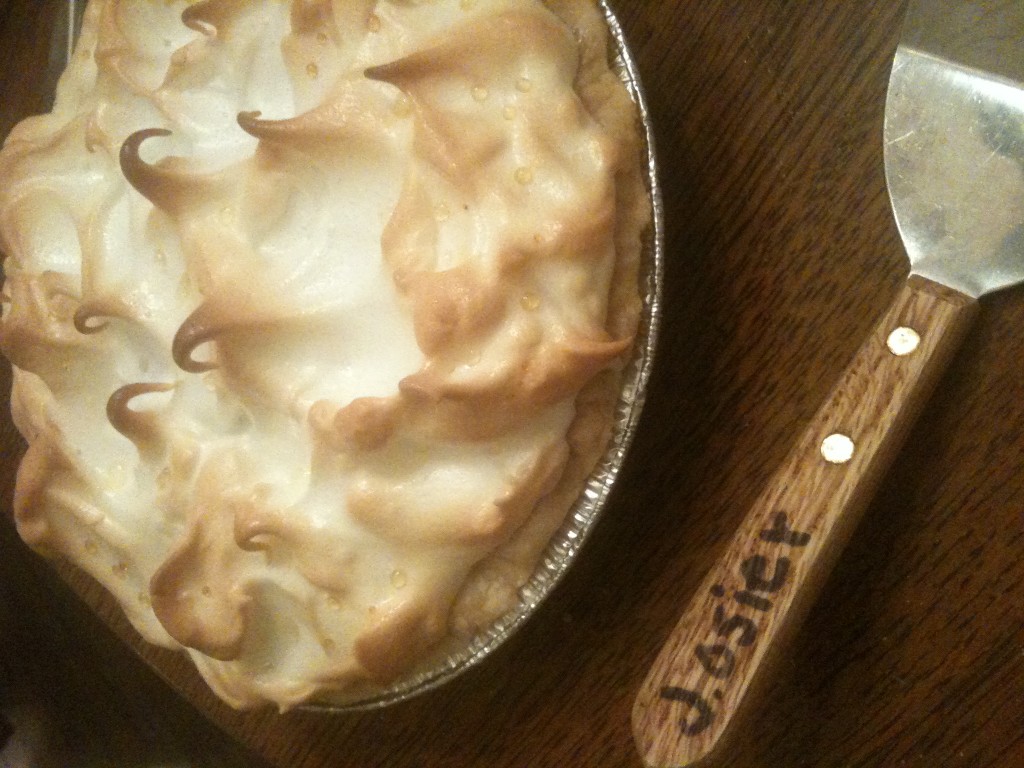Professional chefs know that a meal is a kind of performance, the dinner table a place of theater. So for the holidays I made sure to don my best chef’s hat and draw the red curtain on all my best cooking.
Now, with the New Year upon us, I notice that after all of the dramatic feasts of the holiday season, the “Titanics” of Thanksgiving, and the “Kramer vs. Kramer” of Christmas, what I really want is the culinary equivalent of a Steven Segal flick. I enjoy reading about, cooking and eating good food made with fresh and unique ingredients, preferably doing it all from scratch. But sometimes I tire of food that tries too hard. What I really want right now is cheese in a spray can, “salads” made with Jell-O, something made with marshmallow fluff, food eaten with toothpicks, or anything I can eat on top of a Ritz cracker.
Better yet, I think I’ll just take all the leftovers I can find in my fridge, dump it into a glass dish, add a can of cream of mushroom soup, and call it a day. After all the fanfare of the holidays, it’s just what I want.
And yet, the distinction that I’m making here — between all-out, made-from-scratch holiday fare and preprocessed holiday collage-cooking — is problematic. I spent part of the holidays in the Midwest and there I found these categories turned on their heads. Midwesterners seem to be fond of Crockpot and casserole cooking (they’re called “hot dishes,” I’m told) for holiday gatherings and desserts that feature unique combinations of familiar ingredients (chocolate covered potato chips are delicious!).
What I ate while I was there tasted good enough to go back for seconds and thirds every time, but it was decidedly different from the kind of cooking I grew up with. Southerners (I was born and raised in Georgia) seem to be just the opposite: We show off around the holidays, cooking non-stop for three days, breaking out our finest china and silverware and do everything humanly possible to impress our guests. It’s exhausting. Which is why I’m always craving Cheez Whiz come January.
As a former Southerner living in a place with large numbers of Midwesterners, I’ve come to believe that there is a marked difference between Southern and Midwestern cooking that goes beyond ingredients and cooking methods, and I haven’t been able to put my finger on it until now.
The act of eating is a moral and political act. The choices we make about how we eat are linked to who we are as human beings. How we produce, disseminate, and prepare food has been the topic of much debate lately, from Eric Schlosser’s “Fast Food Nation” to Jamie Oliver’s “Food Revolution.” I think that beyond the debates and controversies, how we eat reveals the moral center of the numerous regional cultures that comprise our nation in a way that is illuminating rather than divisive.
As Americans, we probably share similar values, but each region of the U.S. seems to hold one particular value over the others. For instance, the concept of Southern hospitality isn’t just a cliché — it’s central to the culture and reflective of a particular moral position. Being a good host is about more than showing off your wealth, it’s about loving thy neighbor. If you don’t offer your guest the best you have then you are, in some way, being greedy and immoral. Wealth is to be shared, not hoarded.
The values reflected in Midwestern frugality are equally moral in nature. To be frugal is to take only what is needed, leaving some for your neighbor. “Making do” is a way of ensuring that there is enough to go around in hard times and ensuring that your children’s children will fare well. Extravagance is seen as a kind of selfishness. For both cultures, these things are reflected in the way they eat.
Neither is more correct than the other, and both reveal some of the social glue that holds each culture together.
As for Alaska culture, I think the concept of the potluck aspect of how we eat is indicative of a particularly strong moral value central to our culture here.
Potluck eating is fairly common. To be honest, I can’t remember the last time I ate at someone else’s house and didn’t bring a dish. When I entertain, I never have to prepare the entire meal. The Alaska potluck mentality is heavily influenced by the Alaska Native potlatch, which was largely about redistribution of wealth and reciprocity, as well as the church supper traditions of the Lower 48. Potluck values have pulled my car out of the ditch, taken care of my animals when I’ve traveled, gets us all a thousand bucks every year and it makes sure that when we eat, we eat well and even take some leftovers home.
You bring the Ritz. I got the Cheez Whiz.

Love the pic and the essay! Does Jill know you have her pie serving thingamabob? 🙂
I took this picture the last time she came over. We always cooked together. I miss the Kitchen Vixen!!